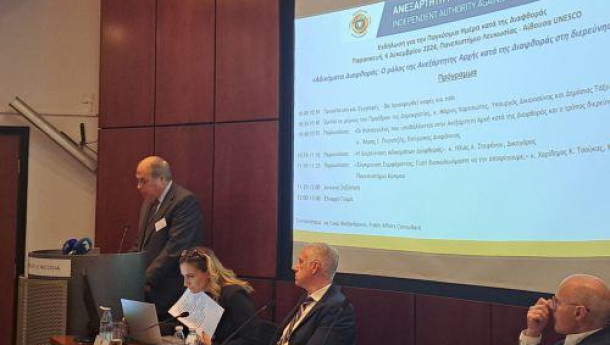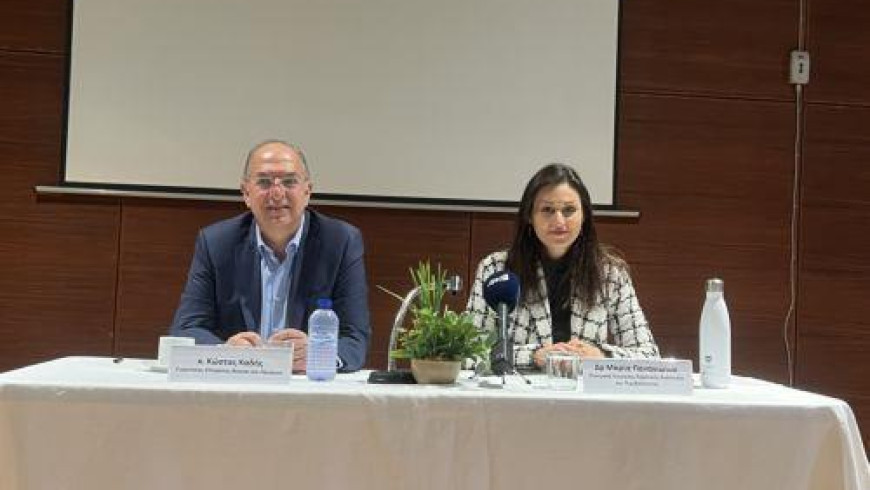
The government of the Republic of Cyprus is intensifying its fight against corruption, aiming to bolster transparency, meritocracy, and accountability, Justice Minister Marios Hartsiotis said speaking at an event by the Independent Authority Against Corruption (IAAC) for International Anti-Corruption Day, also noting that tackling corruption was a top government priority.
“We owe it to our country, our citizens, and our youth, whose trust we must regain. Trust will not be earned with fine words and declarations but through concrete actions and deeds,” he said.
He also said that protecting Cyprus’ reputation is a key component of the government’s strategy.
The Justice Minister underlined the government’s unprecedented allocation of resources toward rebranding Cyprus, including a 72% increase in the IAAC’s 2024 budget compared to the previous year. He said that 2022 was a pivotal year, marked by the establishment of the IAAC and key legislation promoting transparency and whistleblower protection.
“The volume of complaints filed demonstrates public trust in the Authority’s role,” Chartsiotis added.
IAAC to complete 12 investigations soon
Since its establishment, the IAAC has received 330 complaints, including 25% filed anonymously.
Transparency Commissioner Harris Pogiatzis revealed that 12 investigations were underway, with results expected soon. However, he said that over 90% of complaints were dismissed at the preliminary stage, often due to a lack of evidence or jurisdiction. Pogiatzis attributed this to public misunderstandings about what constitutes a corruption complaint.
Transparency Commissioner clarified what constitutes corruption, explaining that it typically involved bribery, illicit enrichment by officials, offenses of extortion, and abuse of power or trust. He stressed that for the IAAC to have jurisdiction, the offenses must involve individuals from the public, broader public, or private sectors, provided their actions are linked to those in the public sector.
“We do not resolve disputes between private individuals, nor do we have the authority to do so. This is why a significant number of complaints are dismissed at the preliminary examination stage,” Pogiatzis explained.
He also said that surprisingly, all 330 complaints submitted to the IAAC have centered on one offense, which is abuse of power.
Pogiatzis assured that no complaint, whether named or anonymous would go without thorough investigation and a justified outcome. Named complainants will be informed directly, while anonymous complaints will have updates published on the IAAC’s website, omitting any reference to individuals.
He noted that no individual would be targeted by the Authority, as the relevant law prohibits the disclosure of any information obtained during its operations.
Pogiatzis further reassured the public that there has been no interference, political or otherwise, in the IAAC’s work. “The independence of the Authority is unquestionable,” he affirmed.
Regarding transparency, he noted that the Authority will issue statements at the conclusion of investigations, outlining outcomes without naming individuals suspected of criminal offenses.
Reflecting on the IAAC’s beginnings, Pogiatzis recalled the public’s anger fueled by high-profile issues, such as the "golden passports" controversy and the Al Jazeera exposure. He added that despite the lack of regulatory frameworks, the Authority began processing complaints in 2022, receiving 24 cases before formal procedures were established.














 3287.99
3287.99 1275.09
1275.09
